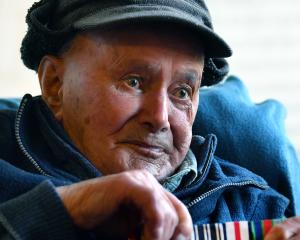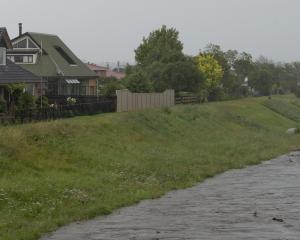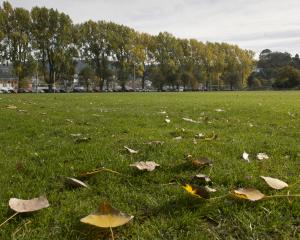After experiencing kidney problems for several years, Mr Fox was diagnosed with chronic renal failure in June 2012, and must spend 15 hours each week - spread across three days - on dialysis.
Since October, after extensive treatment and training in the Dialysis Unit, he has been able to take care of his own dialysis at home.
''It was a bit daunting at first, but the support that I have had from the unit's nurses has been great,'' Mr Fox said.
Home dialysis meant he was hooked up to a haemo-dialysis machine for stretches of five hours, plus about an hour to set-up and an hour to pack up and disinfect the machine, he said.
It was a significant time commitment, but being at home meant patients could be part of family life, read, watch television, use electronic devices, and even sleep, while on the machine, Mr Fox said.
Being on dialysis is just a part of life for Mr Fox, who holds down two jobs - in media and in security. His employers have been supportive of his treatment, he said.
Recently, Mr Fox has expressed his gratitude for the expertise and support of the unit's staff by donating a 32 inch television screen for use in the unit. Plans are in place to use the screen as a display for the electronic scheduling system.
''The help I have had from the staff has been fantastic,'' he said.
''Basically, if I didn't listen to them, I wouldn't be here.''
Dialysis Unit associate charge nurse manager Blair Donkin said there were 99 patients under the care of the unit across the southern region covered by the Southern District Health Board.
While there were nine dialysis stations within the unit, which were in high demand, the vast majority of patients were on home dialysis. They were either using haemo-dialysis machines like Mr Fox or on peritoneal dialysis - which uses the body's own peritoneum as a filter, Mr Donkin said.
The SDHB was a trail-blazer in the field, with more people doing their own dialysis at home than in other regions.
''It is definitely more of a focus here - partly because of our large geographical area, and also because it has much better patient outcomes,'' Mr Donkin said.
''We put a lot of effort into helping people to be independent, through training and support,'' he said.
A new programme of in-home support developed in the unit also enabled people, who were unable to do their own dialysis, to maintain their independence, Mr Donkin said.
Patients were carefully trained within the unit before being sent home to do self-dialysis and developed close relationships with each other and with staff, he said.
''Many regard the unit as a home away from home - it can be quite a social place.
''And it is hugely satisfying for the staff to take patients on their journey - it is an ongoing relationship over many years.''
Dialysis remained a long-term reality for the vast majority of patients, with only a handful of kidney transplant procedures done by the SDHB each year - seven in 2012, five in 2013, and just one so far this year, Mr Donkin said.
''We are always keen to raise awareness in the community about the need for more kidney donations,'' he said.












